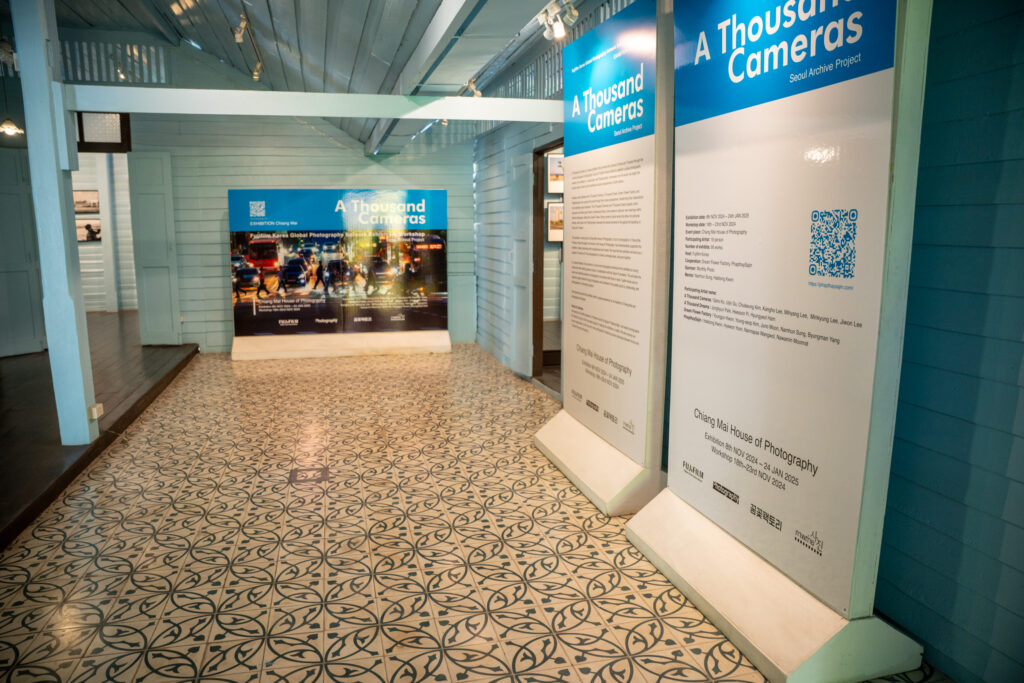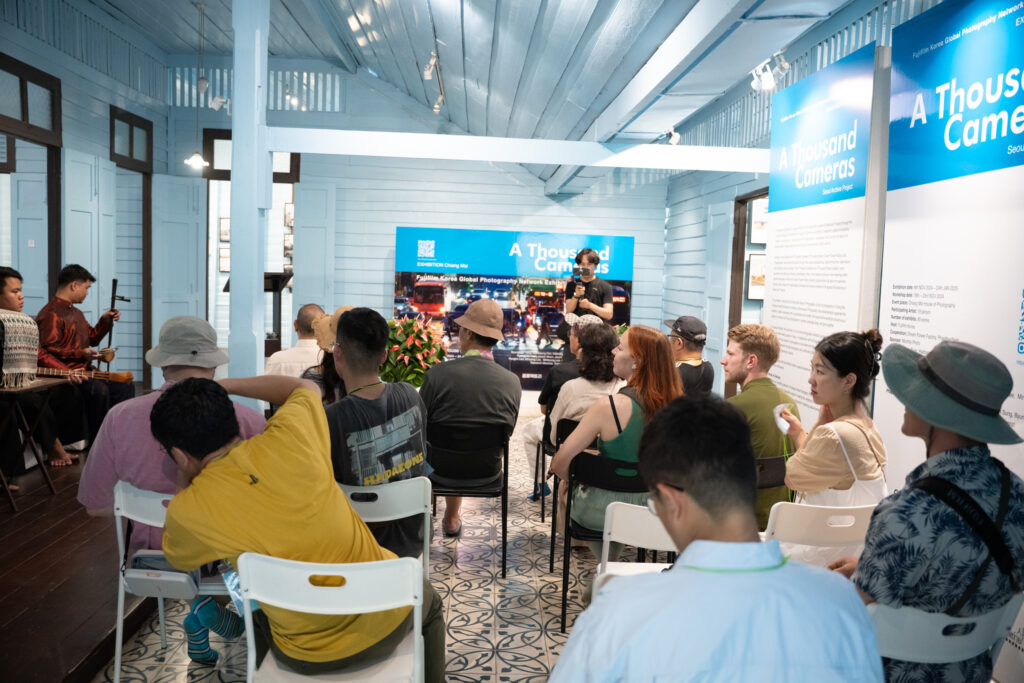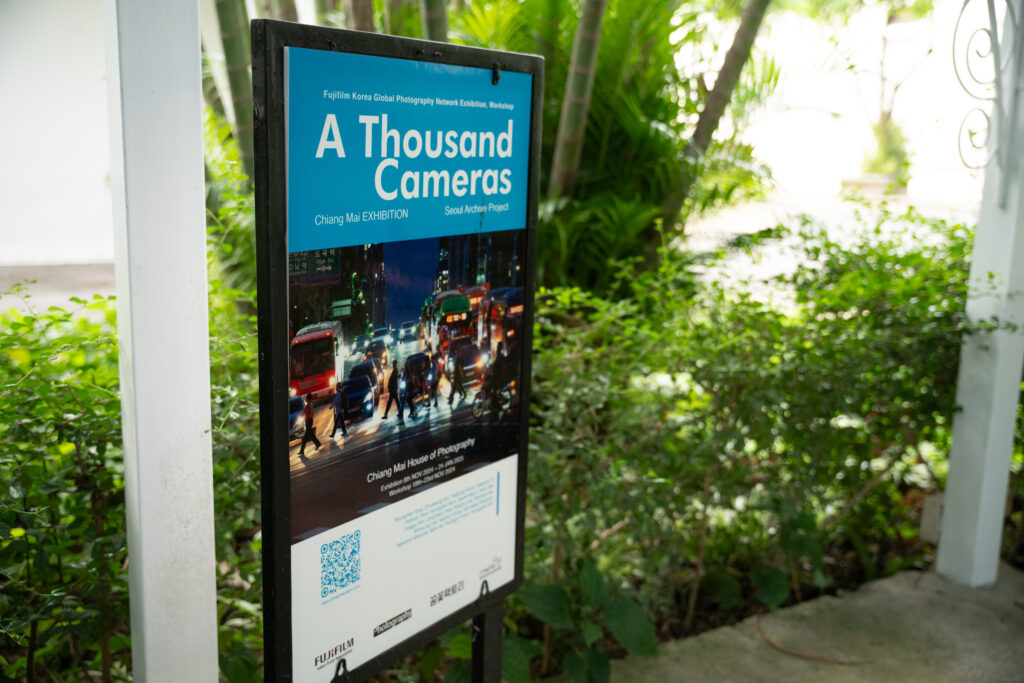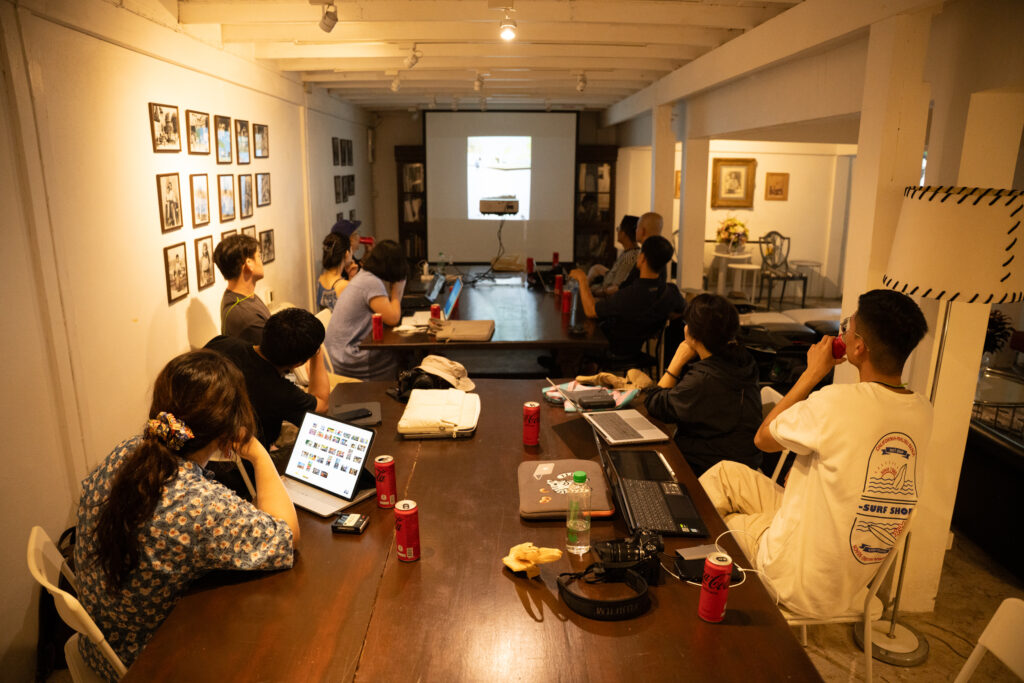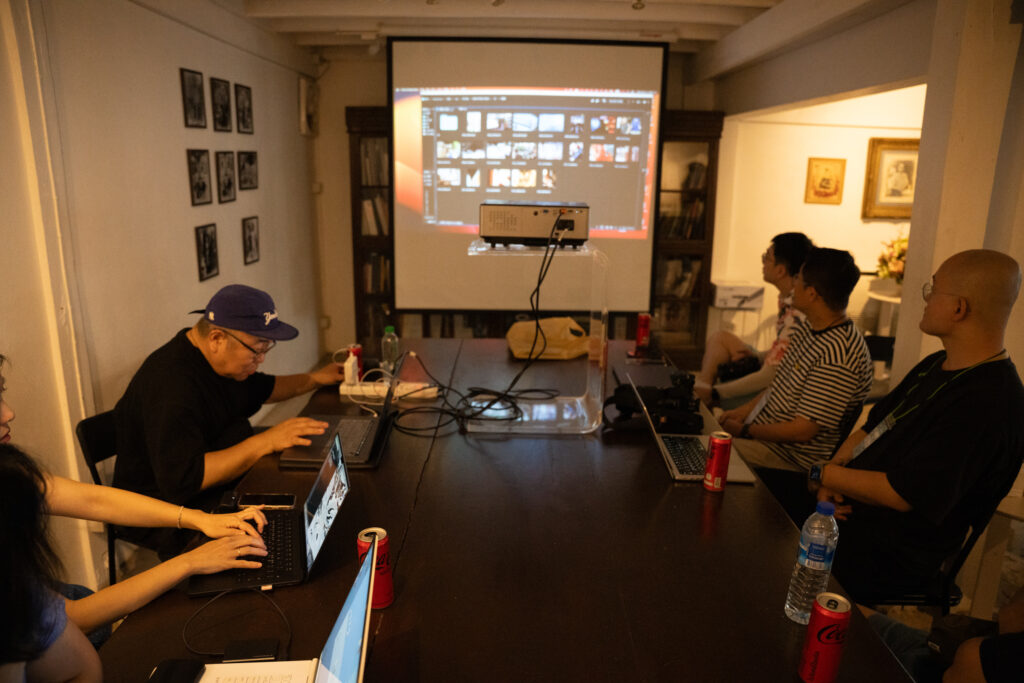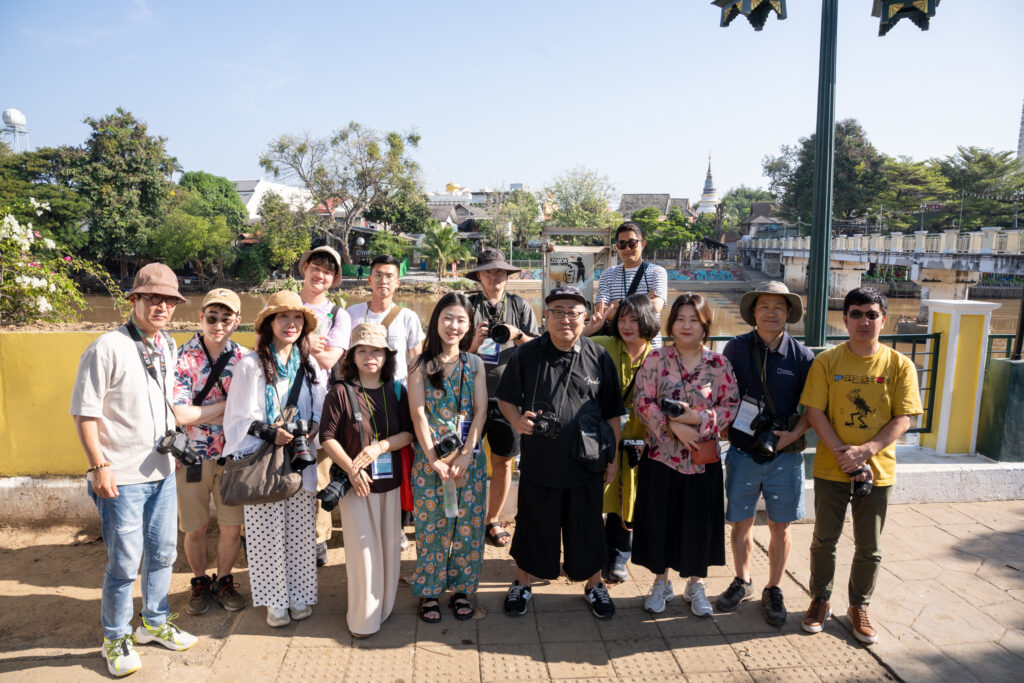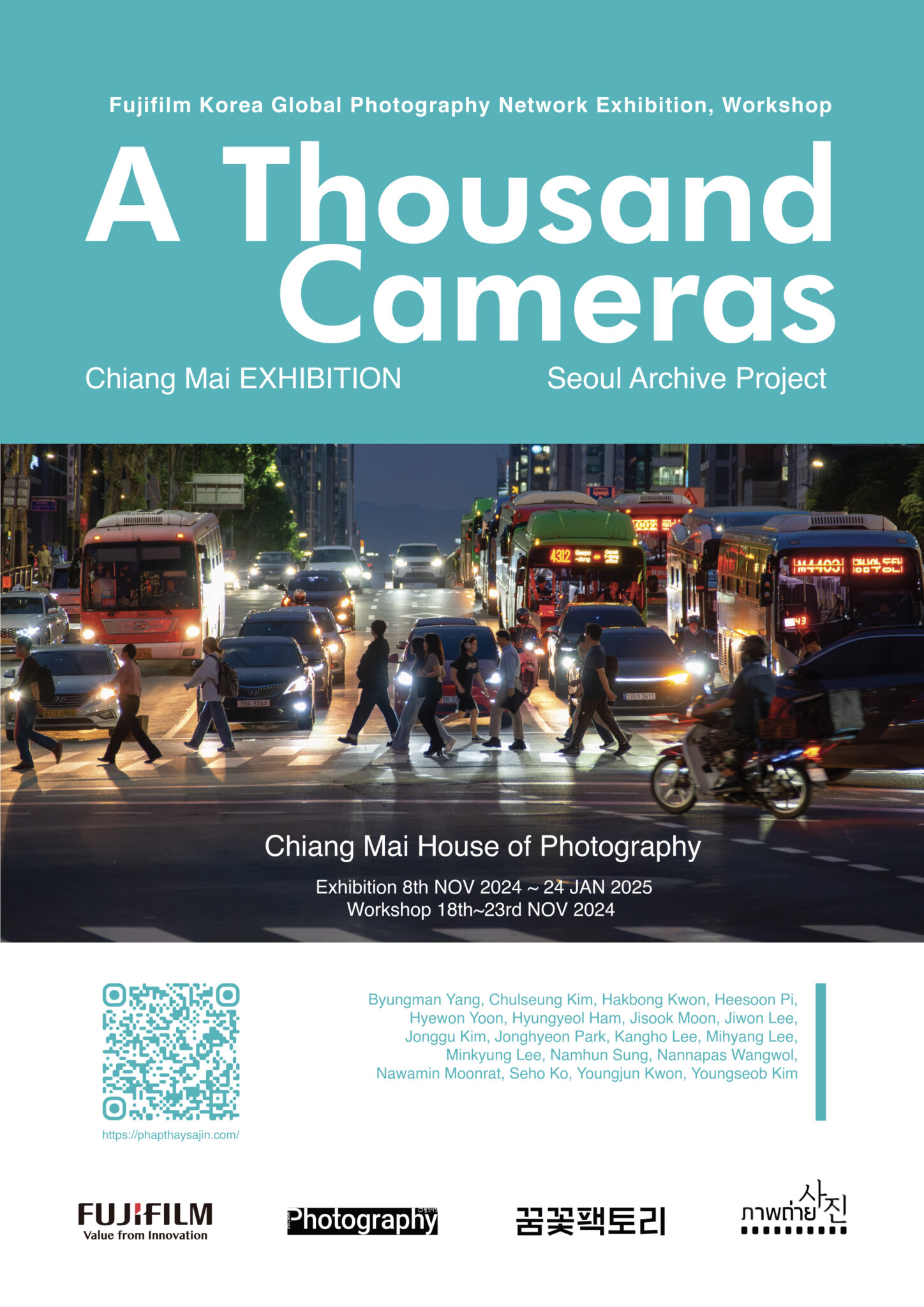
A Thousand Cameras
A Thousand Cameras is a global photography exchange project sponsored by Fujifilm Korea and curated by photographer Namhoon Sung.
This large-scale initiative brought Korean and Thai photographic cultures into dialogue through an international exhibition and workshop program held in Chiang Mai.
Hosted at the Chiang Mai House of Photography, the exhibition featured 95 photographs by 19 Korean photographers, with Hakbong Kwon serving as director for the on-site exhibition and workshops.
A Thousand Cameras: Chiang Mai Edition
From November 8, 2024 to January 24, 2025, the Chiang Mai House of Photography hosted a special international exhibition, A Thousand Cameras.
Sponsored by Fujifilm Korea and curated by renowned photographer Namhoon Sung, this project transcended the notion of a traditional photo show—aiming instead to establish a meaningful platform for Korea–Thailand visual arts exchange.
The exhibition brought together 19 Korean photographers and presented 95 works in total.
Participants came from four networks: A Thousand Cameras, A Thousand Dreams, Dream Flower Factory, and PhapthaySajin, a long-standing Korea–Thailand photo exchange initiative.
Each artist interpreted themes such as cityscapes, human presence, daily life, and fragmented memories through their own photographic gaze.
On-site operations in Chiang Mai were led by director Hakbong Kwon, who oversaw planning, curating, and execution in close collaboration with the local art community.
The exhibition was strongly supported by Prof. Kanta Poonpipat and the Chiang Mai House of Photography, both of whom played crucial roles in local coordination and venue sponsorship.
Prof. Poonpipat, in particular, expressed deep sympathy with the exhibition’s cultural significance and provided full institutional backing.
From November 18 to 23, a five-day photography workshop was held in conjunction with the exhibition.
Artists explored Doi Suthep Temple, local markets, and hidden alleyways across Chiang Mai, documenting the city’s light, textures, and rhythms through their own lenses.
Evening review sessions allowed for open critique and dialogue—revealing how photographic languages shift across cultural contexts and backgrounds.
Uniquely, this project also included a parallel initiative to exhibit selected workshop outcomes in senior care and therapeutic spaces in Seoul.
By doing so, it emphasized not only photography’s artistic value but also its capacity for empathy and healing.
Fujifilm Korea positioned the project as a message: that photography can be a medium for social good.
At the opening reception, viewers lingered long in front of the images.
Scenes of Seoul’s crosswalks, elderly backs, nighttime cityscapes, Chiang Mai’s quiet temples and sleepy markets—these moments evoked deep, universal resonance.
There were no language barriers. The photographs spoke for themselves.
That was the power and promise of A Thousand Cameras.
Importantly, this is not a one-time initiative.
The project seeks to connect photographers across Korea, Thailand, and the broader Asian region in an evolving network.
It aims to expand the horizon of cultural empathy and shared visual expression.
The fact that it began with a bridge between Chiang Mai and Seoul—connected through the universal language of photography—is something worth remembering.

